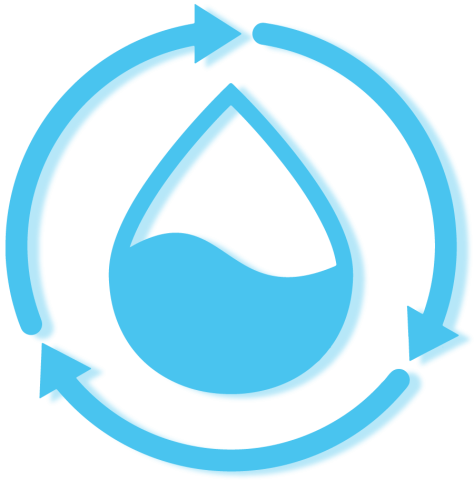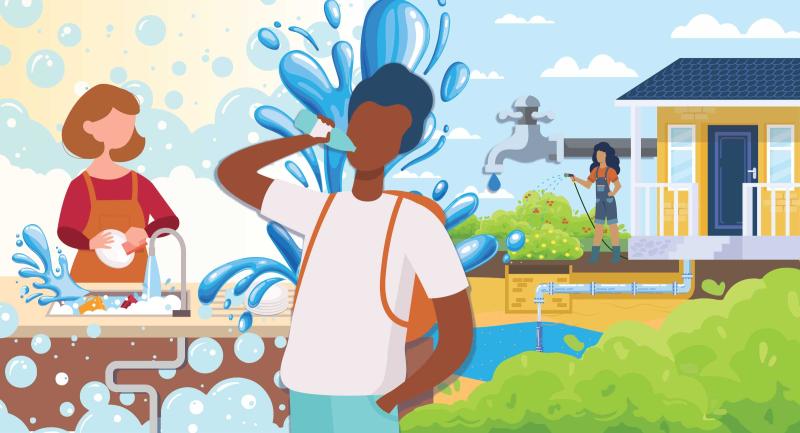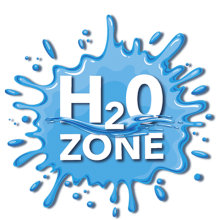You’ve learned how water continuously moves through the natural water cycle, but did you know that humans have created the urban water cycle? The urban water cycle refers to the ways that humans have engineered systems to capture, clean, use and return water to the environment.

With an increase in population and growing demand for water, the urban water cycle can put pressure on traditional water supply sources, such as groundwater and surface waters, and the natural ecosystems that they support. Remember it’s not just humans that rely on freshwater to survive. Numerous plants and wildlife depend on it too! That is why we must be able to balance the needs of all water users.
Alternative Water Supply Options
To tackle water supply issues around the world, scientists and engineers work together to design alternative water supply options. An alternative water supply includes using a nontraditional source of water, such as reusing wastewater or treating saltwater through a desalination plant.
Desalination
Through the process of desalination, salty water that is pumped from the ocean can be turned into freshwater! Florida is surrounded by water, which makes desalination a possible option to meet the water needs of coastal communities. For example, Tampa Bay Water’s seawater desalination plant helps to provide freshwater to parts of Hillsborough, Pasco and Pinellas counties.
Water Reuse
Water recycling, or water reuse, is a form of alternative water supply that captures and reuses wastewater. It helps make the water we have go further by reusing water that is already a part of our urban water cycle, instead of pumping out new fresh groundwater or surface water.
Wastewater is what we call water after it has been used by humans. In many cases, wastewater goes back down the drain after it has been used and is piped to a wastewater treatment plant. It is then treated and emptied out into a nearby body of water. But there’s another, smarter way to use wastewater!
Instead of emptying wastewater back into the environment, we can reuse it. Similar to how we recycle paper, cans and glass to be used again, instead of becoming part of a trash heap, we can also recycle water! Using advanced technology, wastewater can be captured and treated for different uses within a community. Recycled wastewater is cleaned at a water reuse facility to make sure it is safe for its intended use. For example, if the recycled wastewater will be reused inside a home for drinking, cooking or bathing, it would be highly treated and tested to meet strict drinking water standards.
Why Don’t We Use Alternative Water Supplies More?
There are many benefits to using alternative water supply options, but they don’t come without challenges. Compared to traditional water sources, alternative water supplies typically take more time, money, and resources to develop. That means it may not be an affordable option in many locations.


